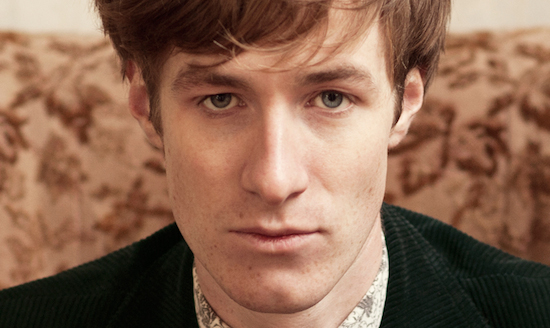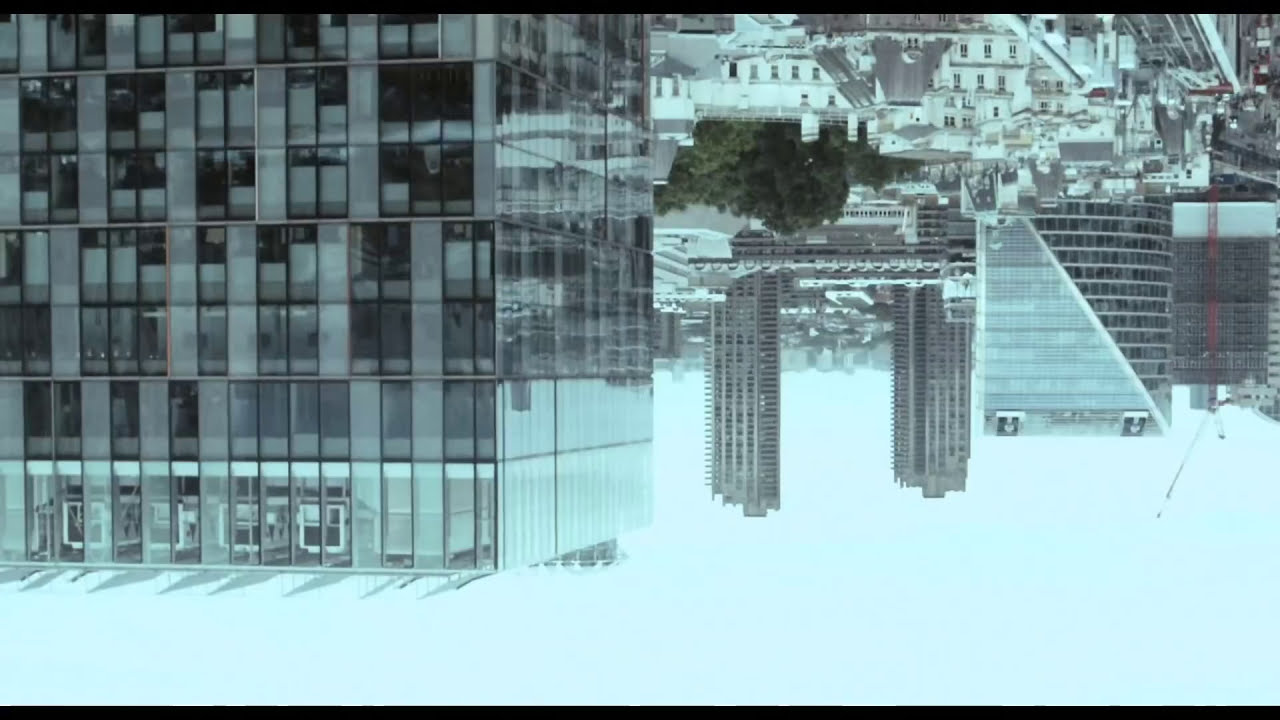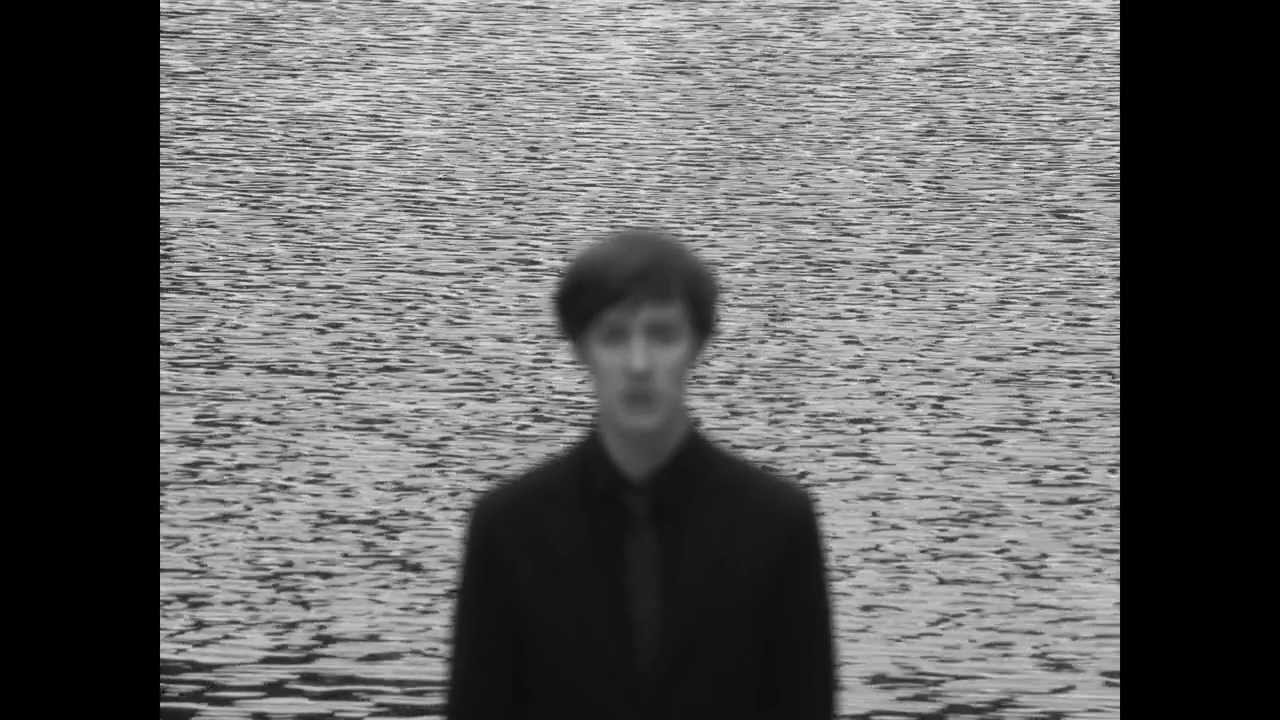In an idle moment, I occasionally like to plot out the future career path of William Doyle, AKA East India Youth. After the well-received Total Strife Forever, his second and third albums of conceptual pop propel him to the top of the charts in the UK, while his musical dissection of the British condition makes him a star in America without resorting to the usual Mumford/Richard Curtisisms. He also builds a successful career as a songwriter for the likes of Adele, and uses his winning speech at the 2018 Brit Awards for a brutal attack on Simon Cowell’s influence on pop music that results in a mass boycott of that year’s X Factor. Unfortunately, what early critics referred to as "euphoric loneliness" becomes a serious cocaine addiction, provoking an inevitable musical decline into ill-advised jazz collaborations with King Krule. Chastened, emaciated and alone, Doyle retreats from public life, and is reported to be living in the top floor suites of various luxury hotels in China. Hearing this, 75-year-old Brian Eno – determined to do one last job before he joins the silent majority – gets on a plane, tracks down Doyle, and together they record The Beijing Trilogy of albums, which then Quietus editor Sophie Coletta (Doran & Turner having been swept away by a pair of vulgar little tumours) praises as "a landmark of 21st century British art".
Hopefully, in terms of the cocaine stuff at least, this is all rather far-fetched, but I do believe that East India Youth’s music has the potential to do something rather radical, breaking out of the confines of the leftfield and penetrating the mainstream. You’re hardly a piffling indie concern when The Sunday Times refers to your debut album as "the first masterpiece of 2014", and I’m convinced that Doyle, whether with his own music or acting as a Trojan horse by writing for others, will have an impact on the pop landscape in years to come. That is, after all, partly why John and I decided to risk brass, time and stress by releasing the Hostel EP last year. To do so was as much as a Quietus mission statement as any of our Black Sky Thinkings, Wreath Lectures, reviews, interviews, tweets and teas brewed. As has been really satisfying to see, the glorious, emotional pop songs that make up Total Strife Forever are hitting a chord with critics, radio programmes and the public alike… which seems like as good a place as any to begin.
Will, are you surprised by the response that the record is getting?
William Doyle: Yeah. hahaha. It’s ridiculous really isn’t it? I always thought it’d be a bit more niche than this. You might argue with that because you always said from the start that it was good pop music, but it is good pop music interspersed with all this weird shit, which is what I think good pop music should be. We’ve been doing pop music for 50, 60 years, I think it’s time we mixed it up a bit, but that doesn’t change the way the system is, so I never expected it to be received in such a mainstream way.
You say that about pop interspersed with weird shit, but I can’t separate the two. ‘Glitter Recession’ to me is a big pop song with great emotional heft, but just doesn’t have any words.
WD: Don’t get me wrong, I don’t think they’re the most obscure things ever made, I just thought they seemed incongruous against the general pop landscape, though I hate that term.
A lot of the reviews have talked about how Total Strife Forever is some kind of idealised dream of what contemporary pop music should be.
WD: That’s the mission statement isn’t it?
Do you feel there’s a craving for that that you’ve tapped into?
WD: It seems like a no-brainer really. Pop music should always be interesting, and should have always been interesting. It should be as mainstream as it is leftfield. The idea that it’s this homogenised, two-dimensional thing is wrong. I just think we’ve fallen into that mindset now.
It’s the conservatism of the people who make the wheels go round, the machine, not necessarily the artists.
WD: It’s usually the songs that are pretty good, but the production values are weird. I hate to sound like an old person who hasn’t listened to music in ages, but all the Autotune stuff, the shrill, high-frequency, massively compressed, in-your-face, gives-you-a-headache sort of thing. The melodic content sometimes is really interesting, and I just think why can’t we have that same melodic content with a much more interesting frame.
What was the first pop song you ever really loved?
WD: It must have been ‘A Girl Like You’ by Edwyn Collins. It’s the first song I can remember hearing on the radio a lot, and my mum loved it, she’d always turn it up. It’s such a bizarre pop song, and even though it references a lot of 60s stuff, there are some really weird sounds, and the repetitive structure, the production style, it was such an alien sound to me at the time. Maybe something like ‘Girls & Boys’ by Blur. Whatever you think about Blur’s 90s output now, as a six-year-old it sounded like the weirdest thing ever. The production values were mad.
It’s a bit Teletubbies, ‘Girls & Boys’
WD: A lot of their stuff was like that. ‘Country House’, it sounds a bit pastiche, and a bit synthetic, which is what I always liked about it.
TOTAL STRIFE FOREVER is such a complete sounding record, you can’t feel a narrative from the genesis of it. So I was interested to know what was the first thing that appeared?
WD: There was a triple opening salvo to the whole creative process. It was ‘Dripping Down’, it was ‘Looking For Someone’, and ‘Total Strife Forever III’, though I didn’t know it was going to be part of that big conceptual thread. ‘Looking For Someone’ came pretty much fully formed, ‘Dripping Down’ took a long time to find its feet, and ‘Total Strife Forever III’ was when I realised that maybe working by myself again and doing electronic music was what I wanted to do. I’d recorded vocals over it, because that’s what I do, but then I thought no, I’ll take them out. It just seemed to get the mood of this time in my life, it just seemed really poignant. I listened to the main loop for three hours on repeat, trying to come to terms with it. I was really happy with it, after a very stagnant phase in my songwriting, it showed me a new path.
As someone who’s a singer, it must have been a big thing to take the vocals out and still say a lot about yourself.
WD: A lot of the album was working against instinct. When something came up where I thought ‘I usually fall on that conclusion’, I did the complete opposite. The vocals had felt forced, and it was more salient to me than before.
That’s what I was saying about the instrumental tracks earlier having emotional weight, they’re not just noisy doodles to fill a gap.
WD: I wanted the vocal tracks and the instrumentals to be as emotional as each other. I don’t really buy into the whole ‘interlude’ thing, I think that’s bullshit. I don’t see why a vocal album should be punctuated with instrumentals, that seems so arbitrary. I don’t want to treat the person listening to it like an idiot by separating the two things. People are smart, they can listen to less than an hours worth of music that might or might not have vocals in it. You need to have a bit more respect for your audience.
Thinking about what you used to make the record, and its frequent feeling of detachment – there’s that line "there’s something clinical about me", was the detachment from the limited means used to make the music, or your mood at the time, or a mixture of the two?
WD: It was mostly my mood. I didn’t feel very in touch with anything at that point. But using the old Windows software, using Cubase, the inherent sound of that is very synthetic and otherworldly, and to me it seems like for the past five years it’s been a mission of people who make music software to create more ‘real’ sounds, this emphasis on humanising the whole process. It’s perhaps a noble goal, but I just think it sounds worse. I like the fact that electronic music sounds synthetic, but synthetic doesn’t have to mean ‘not human’. In many ways synthetic music can tap into your self a lot more accurately than, say, a guitar.
A lot of people, including myself, have said that the record inspires weeping. It has a huge emotional punch. I imagine listening to John Foxx and Gary Numan for the first time back in the day would have been similar.
WD: Yes, because they weren’t faceless electronic music producers, they weren’t wearing masks or whatever stupid shit you get nowadays. That’s why I’ve been so keen to disassociate myself from being an electronic artist. I make electronic music but I’m not an archetypal electro geek. I love dance music, I love buying it, I love going raving, but it feels like something I can never really infiltrate as a person. It feels like too much of a scene that has all these labels and different genre things, and I don’t understand that. All I’m interested in is what viscerally hits me. My route into electronic music doesn’t come from listening to electronic music. I started making it because of the tools that were available to me. My software had an inbuilt synthesiser, I’d never never really listened to any real electronic music, I was listening to indie bands at the time, so my frame of reference was nothing really. I just learned to use stuff.
Do you worry that getting more into electronic music might mess things up for you?
WD: Definitely. It makes you appreciate all the codes and conventions of the style, of the form, but I’m not going to make a dance album, the next album’s not going to be a dance album. Far from it. People ask if I’m part of a scene, but I don’t really care about that. I’m fine not having mates.
It’s that Euphoric Loneliness again. Do you feel like a older head on younger shoulders?
WD: I do think that I’ve stopped caring about what my contemporaries are doing or thinking, because that’s how I’ve approached the people around me for years. I don’t know if it’s the most emotionally healthy thing to do…
How do you mean?
WD: I just lost interest in people. I became more interested in places, in a physical and atmospheric, emotional sense, than people. What sort of place I was inhabiting, that started to inform the music I was making. I’m never going to write character-based songs, because I don’t think like that, I’m not into characters, I’m into places and atmospheres, really, not the people in them.
That could be read as being misanthropic, yet you’ve made a record that’s highly emotional and very generous
WD: I’m not misanthropic, I don’t mean I lost interest in people and started to resent them, I was happy with my own issues. I didn’t have anyone to relate to, just the music I was listening to. I didn’t feel part of the crowd ever. When I started making music I thought I m having a much better time now than pretending I’m enjoying myself with people. I’m a lot more sociable now, I’ve got a lot more time for people, but I do think it taught me an interesting discipline with my work, and it’s something I’m carrying over now – I don’t care about the general narrative outside of what I’m doing.
Thinking again about how pop music is at the moment, we do get annoyed when people say The Quietus is anti pop music, we’re not, we’re against the formulaic. Pop is about hitting you emotionally in a strange way.
WD: Pop music should be the most emotional music ever. But I’ve been thinking about this, and I think the reason for how pop is now is because the pop star is now so self-obsessed that all the emotion behind it is gone. I was thinking of pop icons we had before, like David Bowie or Madonna. These are people who are so interested in the world around them, and it’s not just about the absorbing of those influences, it’s about the need to fucking communicate to other people. Has Rihanna ever read a fucking book, ever? What does Rihanna listen to? She might listen to loads, but she doesn’t communicate it does she? Lady Gaga goes on about Jeff Koons and Pop Art, but I think it’s a PR schtick, because there’s a hole where nobody’s talking about that, but it’s not inherent in her music, is it? Her production style and the songwriting don’t communicate her apparent love for this other world outside of herself. That’s why pop music has lost its emotional content, because it’s stopped being about an emotional experience with influences, and it’s become someone’s experience with themselves, and I think that’s fucking boring. I can’t understand why anyone wants to listen to that, or make that. You can draw a line somewhere in the 90s and see how it all went downhill.
Do you have hope for it though? Do you draw a line under the mass audience and just cater to a niche? I like what you’re doing because I never want interesting music to preach to the converted, I want it to have mass appeal.
WD: You have to fucking ignore it really. You have to do everything you want to fulfil the goals that you have, and if you fulfil those goals and it ends up becoming mainstream, then great, if it doesn’t and you still manage to achieve your goals, then it doesn’t matter. You look at when Coldplay headlined Glastonbury, and they probably did that without having to make too many compromises along the way. If I’m able to carry on doing what I have to do, and I can headline the main stage of Glastonbury without having to bend over backwards and get fucked up the arse for this opportunity then great, I’ve fucking won haven’t I? And all the idiots like me have won. And it doesn’t happen, as long as I can make enough money to buy some ales, pay my rent and feel fulfilled by what I’m doing, then I don’t give a shit really. If I get bored by what I’m doing, then it’s time to figure out how to change it. But it’s early days, I’m feeling really enthusiastic about it all.
East India Youth’s debut album Total Strife Forever is out now via Stolen Recordings. His UK tour begins next week




